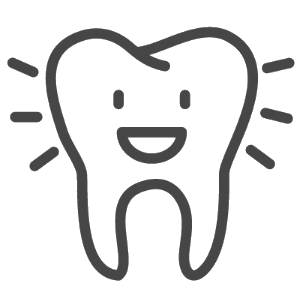A dental check-up (or examination) is our way of making sure your oral health is maintained for today, tomorrow and the future.
We know that every smile is unique, and strive to nurture the important relationship between you and your dentist. Regular check-ups are advised to provide a preventative approach to dental care.
What does a check-up include?
On your first visit, a complete medical and dental history will be taken to provide us with a broad understanding of your individual needs. Your dentist may take an x-ray of your teeth.
An x-ray can be invaluable for diagnosing any issues that may otherwise go unnoticed and for getting an accurate indication of your oral health.
If any further treatment is required, no matter how large or small, we will always give you a complete treatment plan with detailed costing for every item.
At every check-up we carry out a comprehensive ten point examination which includes the following;
Cancellation Policy
Should you need to reschedule an appointment, we ask that you give us as much notice as possible so that we can offer your appointment to somebody else. Under circumstances where less than 48 hours’ notice is given or if an appointment is missed, we will request a cancellation fee.
Missed appointments prevent us from scheduling another patient that could benefit from our services. We schedule individual time with each patient dependent on their treatment to allow us to deliver the quality and personal care that every patient deserves.
Frequently Asked Questions
How often should I visit the dentist?
We would always recommend that you visit the dentist every six months to ensure that a thorough examination is completed and to screen for any disease.
What is mouth cancer?
Cancers can occur in any part of the mouth, tongue, lips and adjacent areas like the throat, salivary glands, pharynx, larynx, sinus and other sites in the head and neck area. Treatment for mouth cancer can be highly effective, dependent upon where it is, so long as early detection and treatment is undertaken. We screen for mouth cancer at all of our dental check-up appointments.
What is tooth decay?
Tooth decay is a disease process which is very common. It occurs through the process of dietary sugar consumption which is used as an energy source by the bacteria that live in the mouth. As a waste product, bacteria produce acid which breaks down the tooth structure and is what causes the tooth decay.
How can I prevent tooth decay?
By reducing the amount and more importantly the regularity of how often you consume sugar / and sugary foods, it reduces the energy source available for the bacteria and in turn the acid that they produce to cause the decay in the first place.
Brushing with a Fluoride based toothpaste twice a day. Fluoride incorporates itself into the microstructure of the tooth which makes it more resistant to decay.
What is gum disease?
Gum disease is very common and equally very treatable. It occurs because of the build-up of plaque on the tooth surface which contains vast amount of bacteria which can irritate and damage them. If teeth are not cleaned regularly the bacteria can cause the gums to become inflamed, bleed and become painful. These are all signs of gum disease and must be treated immediately. If left untreated gun disease can result in more severe symptoms such as gum recession, sensitivity and mobility of teeth.
How can I prevent gum disease?
Brushing twice a day on the tooth surface and gum margins which will remove the plaque and the cause of the irritation to the gums and gum disease. It is also important to use floss of interdental brushes to remove any plaque and debris from between the teeth.
Visit the hygienist every six months. The hygienist will ensure that the health of the gums are checked, cleaned and also provide advice on how best to improve any oral hygiene regimes.
Avoiding smoking. Smoking can release many potent chemicals into the mouth which can result in gum disease.

Prevent gum disease and mouth cancer

Maintain good oral health

Prevent halitosis (bad breath)

Retain your teeth

